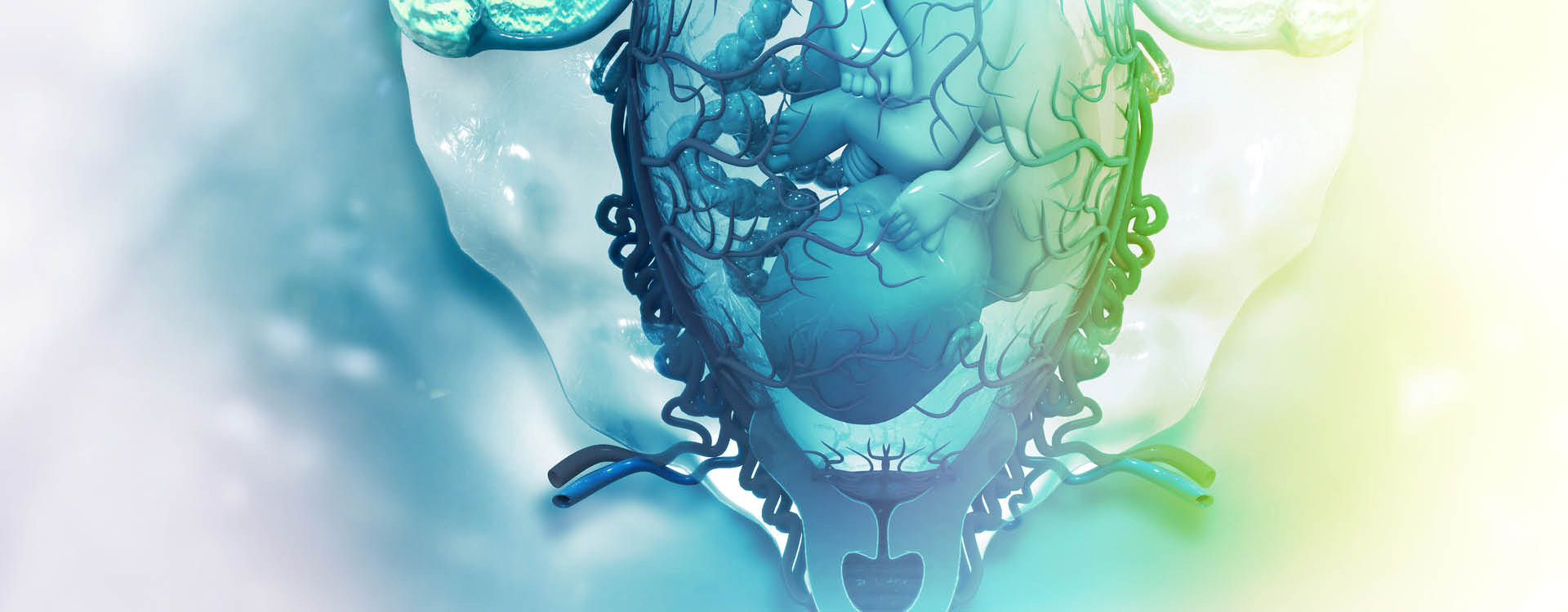Pregnancy cravings are super common but can vary from person to person. Some women crave salty snacks, while others find themselves reaching for sweets. These cravings are mostly influenced by hormonal changes, your body’s nutritional needs, and even emotional factors, so if you're craving sweets, it’s pretty normal!
What Are Pregnancy Cravings?
Craving certain foods during pregnancy is totally normal, and it can be different for everyone. Some women can’t get enough salty snacks, while others find themselves reaching for sweets. These cravings are mostly tied to hormonal changes, your body’s nutritional needs, and even cultural factors.
As your hormones shift, your taste buds and sense of smell can get extra sensitive, making some foods seem irresistible. Plus, your body might be looking for a quick energy boost, like sugar, or specific nutrients it’s craving.
Cultural influences also play a role, so your cravings might depend on where you’re from or what you’re used to eating [*].
Are Pregnancy Cravings Common?
Having food cravings is very common, about 50% to 90% of pregnant women experience it. Sweet treats like chocolate, ice cream, and candy tend to top the list, but some women also crave salty or savory foods, though that's a bit less common.
The types of cravings can vary, but it's pretty consistent that women tend to go for sweets, fruits, dairy, and fast foods.
Thankfully, cravings usually disappear after giving birth, and very few women report still craving things once they've had their baby [*].
When Do Pregnancy Cravings Start?
Women typically start experiencing food cravings by the end of the first trimester, around 13 weeks of pregnancy. Cravings tend to peak during the second trimester when they're most intense, and then gradually decrease as pregnancy progresses. By the time women reach the later stages of pregnancy, cravings often subside.
Most cravings also tend to disappear after delivery, with very few women continuing to crave specific foods postpartum [*][*].
What Do Pregnancy Cravings Mean?
Pregnancy cravings can often be the body’s way of asking for specific nutrients. For example, cravings for fruits like unripe mango or tamarind, which are high in vitamin C, may help improve iron absorption, which is important during pregnancy. These cravings might be the body’s natural way of making sure it gets the nutrients it needs for both the mother and the growing baby.
So, even though pregnancy cravings might seem odd, they could actually be a sign that the body is trying to meet certain nutritional needs [*].
Why Am I Craving Sweets While Pregnant?
Craving sweets during pregnancy is pretty normal and usually happens because of hormone changes, blood sugar fluctuations, or emotional stress. Your body might also crave sugar to quickly boost energy, even if what it really needs is something like calcium or vitamins.
Hormonal Changes
During pregnancy, hormones like hCG, progesterone, estrogen, and leptin can directly influence food cravings.
High levels of hCG and progesterone can alter taste and smell, making certain flavors more appealing or repulsive. For example, progesterone can heighten sensitivity to bitter tastes, while estrogen may increase cravings for sweet or savory foods.
Leptin, a hormone involved in regulating hunger, also rises during pregnancy, which may boost appetite and drive cravings for calorie-dense foods, particularly those high in sugar and fat, to support the increased energy demands of pregnancy.
These hormonal shifts all play a role in shaping cravings for specific types of food [*][*].
Blood Sugar Levels
During pregnancy, changes in blood sugar can trigger cravings for sugary foods. As insulin levels fluctuate, blood sugar can drop, leading the body to crave quick energy, often in the form of sweets.
Hormones like leptin also affect appetite, making you more likely to crave calorie-dense foods.
On top of that, nutrient deficiencies, like low chromium (which helps regulate blood sugar), can increase the desire for sugar [*][*].
Emotional and Psychological Factors
During pregnancy, emotional and psychological factors can play a big role in cravings. The mix of hormones, stress, and mood changes can make women more likely to reach for comfort foods, especially those high in sugar and fat. These foods provide a quick mood boost, thanks to the release of feel-good chemicals in the brain.
Additionally, societal expectations can make indulging in cravings feel more acceptable, which can lead to overconsumption.
For women with a history of disordered eating, pregnancy may trigger a stronger urge to use food as a way to cope with stress or emotions [*].
Nutritional Deficiencies
Nutritional deficiencies might trigger cravings during pregnancy as the body tries to meet its increased nutrient needs. For example, craving calcium-rich foods like ice cream could signal a need for more calcium, or a desire for fruit might point to a vitamin deficiency.
However, cravings often lean toward sugary or fatty foods rather than nutrient-dense options like leafy greens or beans.
In more extreme cases, some women develop pica, a condition where they crave non-food items like dirt, clay, or ice, often due to a lack of iron or calcium.
So, while cravings might point to a nutritional need, they don’t always match up with the best food choices [*][*].
Risks of Eating Too Many Sweets During Pregnancy
While the occasional sweet treat is generally harmless, overindulging in sugar during pregnancy can come with risks, both for you and your baby. Here are some potential risks to consider:
Gestational Diabetes
Eating too much sugar, especially from sugary drinks like soda, can increase the risk of gestational diabetes (GDM) during pregnancy. GDM happens when your body can't control blood sugar levels, and it's more common in women who consume a lot of sugar.
Studies show that sugary drinks, especially cola, can raise the risk of GDM by up to 29%.
High sugar intake also reduces insulin sensitivity and contributes to weight gain, which makes GDM more likely.
A healthier option is following a Mediterranean-style diet, which can lower the risk of GDM by up to 35% [*].
Preeclampsia
Pregnant women may crave sugar, often leading to increased consumption of sugary foods and drinks, which can raise the risk of preeclampsia. This condition, marked by high blood pressure and protein in the urine, can cause serious complications for both mother and baby.
A diet high in sugar, especially sucrose, increases the risk, particularly in women with a lower BMI.
Reducing sugar intake and focusing on a balanced diet can help lower the chances of developing preeclampsia during pregnancy [*].
Excessive Weight Gain
Eating too much sugar during pregnancy can lead to extra weight gain, which can cause problems for both you and your baby. Things like sweets, cakes, snacks, and sugary drinks are all linked to gaining more weight than what's healthy.
For example, a study from Denmark found that women who ate a lot of sugar gained about 1.4 kg more than those who didn’t. This extra weight can increase the chances of complications like high blood pressure, having a bigger baby, or needing a C-section [*].
Increased Risk of Tooth Decay
Excessive sugar intake during pregnancy can increase the risk of tooth decay due to its impact on oral health.
When you eat sugary foods, the bacteria in your mouth feed on the sugar and produce acids that can erode tooth enamel, leading to cavities. Pregnancy can already make you more vulnerable to dental issues like gum disease and tooth sensitivity due to hormonal changes, and adding sugar to the mix can make things worse [*].
How to Manage Sugar Cravings While Pregnant
If you’re trying to watch your sugar intake, there are a few different ways that you can help satisfy those cravings for sweets without all the extra sugar.
Opt for Healthier Sweet Snacks
There are tons of healthier snacks you can make at home instead of grabbing the sugary processed stuff from the store.
Dates stuffed with nut butter are naturally sweet and packed with healthy fats and protein. Strawberry yogurt bark is a creamy, antioxidant-rich treat, and chia seed pudding is a simple snack that’s full of fiber and omega-3s.
These options are easy to whip up and give you all the good stuff without all the extra sugar [*].
Don’t Skip Meals
Not skipping meals is key to managing sugar cravings during pregnancy. When you skip meals, your blood sugar levels can drop, triggering intense cravings for something sweet.
Eating regular meals, including breakfast, helps keep your blood sugar stable throughout the day, making it easier to avoid those sugary snacks [*].
Stay Hydrated
Staying hydrated is key when managing sugar cravings during pregnancy, especially if you're cutting back on sugar.
As your body detoxes, you might feel headaches or fatigue, but drinking enough water helps flush out toxins and ease those withdrawal symptoms.
It also keeps your electrolytes balanced, which is important for energy and muscle function [*].
Craving Sweets FAQ
What does it mean when you crave sweets while pregnant?
Craving sweets during pregnancy is normal and can be caused by hormonal changes, low blood sugar, or a need for quick energy [*].
Is it a boy or girl if you crave sweets?
Craving sweets during pregnancy is not a reliable indicator of the baby’s gender. While some believe sweet cravings suggest a girl, research shows cravings are more linked to nutritional needs or hormonal changes, not the baby’s sex. The most accurate ways to determine gender are medical tests like ultrasounds or blood tests [*].
Is it bad to eat sweets every day while pregnant?
While eating foods high in sugar regularly isn’t recommended, as long as you watch your sugar intake, it’s safe to treat yourself every now and then. Having too much sugar can lead to weight gain, gestational diabetes, and other health issues though, so it’s best to have sweeter snacks in moderation [*].
Do babies like sweets in the womb?
Babies can develop taste preferences in the womb, but there's no strong evidence that they specifically "like" sweets before birth. While they can taste the flavors of what you eat through the amniotic fluid, there's no clear indication that they prefer sugary foods. However, regular exposure to sweet flavors might influence their preferences later on [*].
Why do babies kick when you eat sweets?
Babies may kick more after you eat sweets because they’re sensitive to changes in your blood sugar. When you eat, especially sugary foods, your blood sugar levels rise, which can make the baby more alert and active. This is why you might notice your little one moving around more after meals or snacks [*].
The Bottom Line
Craving sweets while pregnant is totally normal, due to all the hormone changes going on in your body. It’s okay to indulge every once in a while, but try to keep it in check to avoid any negative side effects of too much sugar.
To help manage your cravings, go for healthier sweet snacks, drink plenty of water, and don’t skip meals to keep your blood sugar steady.
About MiracleCord
MiracleCord provides advanced umbilical cord blood stem cell banking at competitive prices. Stem cell therapies are already helping patients with over 80 serious blood disorders, with clinical trials exploring additional potential applications.
Discover why MiracleCord was named the Best U.S. Cord Blood Bank by Global Health & Pharma. Request a complimentary information kit or call us at 888.743.2673 to learn how we can help protect your family’s health.
DISCLAIMER: THE INFORMATION ON THIS WEBSITE IS NOT INTENDED TO BE USED AS MEDICAL ADVICE.The materials and information contained on the MiracleCord website is provided for educational and informational purposes only, and is not intended to, and does not constitute, medical or other health advice or diagnosis, and should not be used as such. You should not use this information to diagnose or treat a health problem or disease. If you are seeking personal medical advice, you should consult with a licensed physician. Always consult with a qualified health care provider regarding a medical condition.




